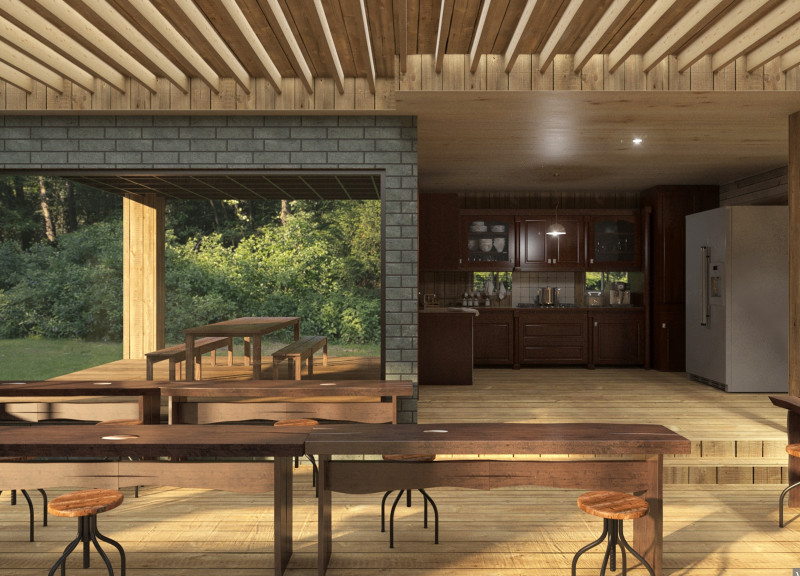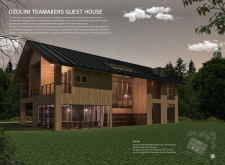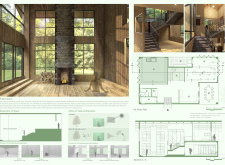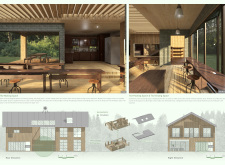5 key facts about this project
The Teamakers Guest House is a new hospitality space that replaces an older stone structure, thoughtfully positioned to connect with its natural surroundings. The design focuses on creating spaces that enhance the guest experience, responding to the sun's position and the geographical orientation of the site. Through its layout, the guest house encourages interaction among visitors, creating a balance between personal comfort and community engagement.
Public Spaces
The first floor is devoted to communal areas that promote interaction among guests. The living room and meditation space act as central hubs for socializing. Characterized by high ceilings, these areas encourage plenty of natural light to enter. As a result, the atmosphere feels open and inviting, reducing any sense of restriction.
Private Retreats
On the second floor, the design shifts to focus on privacy for guests, offering an open layout that accommodates spacious individual rooms while ensuring privacy through careful wall placements. Each room comes with a balcony, extending living space outdoors and allowing guests to enjoy views of nature. This arrangement fosters a sense of comfort and tranquility, ideal for relaxation.
Functional Design Elements
Circulation within the building is a key consideration. The layout minimizes congestion in busy areas like tea-making and packing zones. The positioning of stairs is deliberate, facilitating easy movement between floors. These design choices enhance functionality, particularly in areas designed for tea preparation, packing, and drying. Every detail serves a purpose, supporting a smooth workflow.
Materiality and Atmosphere
Materials also play an important role in shaping the guest house's character. Warm wood is a prominent feature throughout, creating a welcoming and cozy environment. The use of Hinoki cypress wood in the shower room stands out, providing natural antibacterial properties and a calming scent to enrich the experience.
Large windows and folding doors connect indoor spaces with the outdoors, allowing ample light and airflow in. This design fosters an inviting warmth that permeates throughout, making the guest house a comfortable place for relaxation and social interaction.






















































